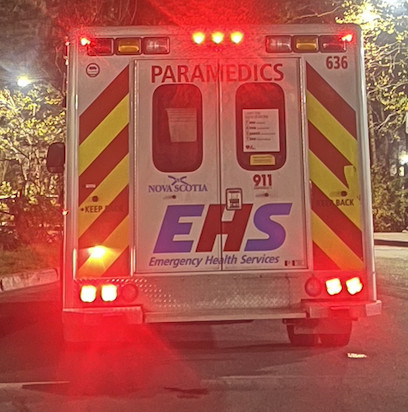
Due to the nature of their work, paramedics are at substantive risk for Post-Traumatic Stress Disorder (PTSD), however Alshahrani et al. (2022) discovered that little qualitative cross-cultural information was available pertaining to incidence of PTSD and trauma exposure and of preferred coping strategies.
Literature Review
According to Alsharhrani et al. (2022), there is a significantly higher incidence of PTSD in paramedics working in developing countries than those in developed countries. As cited in their introduction, both Berger et al. (2012) and Petrie et al. (2018) explored rates of PTSD between Western European paramedics (5.4-15.7%) and those in the Middle East (30-94%). Similarities were found in trauma response triggers, including vulnerable victims, car accidents and violent crimes. Commonality was also present in organizational stressors. Shared healthy coping mechanisms included professional therapy and exercise.
Research Questions Being Investigated
The researchers sought to investigate the “lived experience of potentially traumatic work events between Saudi and UK ambulance personnel. The specific aims were to investigate: 1) the impact of potentially traumatic events on Saudi and UK ambulance personnel; 2) how they coped with these events, and; 3) the types of support they preferred” (Alsharhrani, 2022).
Method
Research Design
The study utilized semi-structured interviews to compile data on trauma exposure, coping strategies and support mechanisms in two target samples. All participation was voluntary, and participants were informed of their right to refuse questions or withdraw at any time. Given the sensitive nature of the material, follow-up debriefing was conducted with each paramedic after the study, to help ensure the well-being of their mental health.
The study was approved by the School of Psychology Ethics Committee at the University of Leeds, UK and all research was conducted according to the Declaration of Helsinki for research involving human participants.
Participants
The study employed a criterion purposive sampling method, wherein target samples were recruited via advertisement, from the United Kingdom (UK) and Saudi Arabia (SA) and were comprised of eight active and paid paramedics from each country, with a minimum of one year’s experience.
Materials
Interview questions were piloted with a 15-year Saudi paramedic veteran to improve their fluency. All questions were translated into Arabic for that target sample.
Procedure
Researchers used a Phenomenological design with semi-structured interviews. To facilitate broad geographical access, interviews were conducted by telephone and were audio-recorded. The phone interviews allowed paramedics to speak openly about their trauma without concern regarding anonymity or the risk of stigmatization. Interview transcripts from the Saudi sample were collected in Arabic and then translated into English by the lead researcher. All transcriptions were verified by a second bilingual study author to ensure accuracy.
Data Analysis
As described in Goodwin & Goodwin (2017), data was evaluated using a six-step thematic analysis: all data was read and reviewed; information was categorically coded, and 30% of transcripts were audited for consistency; codes were correlated into greater themes; themes were collaboratively audited, and data was assigned to each; themes were named; and a report with a narrative was created based on the analysis of the data.
Results
Table 1
Four themes with cross-cultural correlations.
| Theme | Paramedic Reporting | |||
|---|---|---|---|---|
| Trauma Both countries reported these stressors. | Organizational (+), Interpersonal (-), Societal (#) Pressures Both countries reported these stressors. | Coping Strategies Common | Coping Strategies Uncommon | Support Both countries reported these preferences. |
| -Car accidents (especially SA) -violence/family conflict (especially UK) -personal safety (especially UK) -vulnerable victims -female victims (especially SA) | + poor job security + strict policies (especially SA) + unfair policies (especially SA) – bullying – unqualified coworkers – inexperienced coworkers # under-appreciated # Bystanders interfering during calls (especially SA) # Bystanders watching & criticizing calls (especially UK) | Saudi -Sports: walking/gym -separate personal & professional life | Saudi -spirituality | – more comfortable with professional counselling over speaking with colleagues – more likely to pursue individual over group support – employer provided professional therapy seen as supportive and as the organization investing in the employee |
| UK -Sports: running/ swimming -separate personal & professional life | UK -gambling -increased alcohol use | |||
Implications for Counselors, Clients, and Counselling
From a sociological perspective, psychotherapists who understand both cultural implications and divergent organizational structures will be better able to foster an effective therapeutic alliance based on respect (Saly-Westbrook, 2016). Prioritizing individual and company sponsored therapy will help address perception of need by paramedics seeking support. Further study could also help with the refinement of critical incident stress management and treatment.
Summary
The study reflected consistent findings compared to the available literature, in that there is a higher incidence of PTSD in developing Middle Eastern countries as compared to developed Western European countries. There are common and unique stressors and coping strategies, based on region.
Interpretation
Despite the limited data available, insights from this study were consistent with the current literature. The credibility of the study was reinforced by the diversity of the research team. Possible bias included self-selection recruitment and the semi-structured interviews may have limited or tailored respondents’ contributions. Some variables noted in the literature pertained to service region; whether rural or urban, however current literature still recognized increased incidence of PTSD in paramedics working in developing countries. The authors cited data from both Almoshaogeh et al., (2021) and Yohannes and Minale (2015), concerning the high incidence of traumatic motor vehicle accidents in Saudi Arabia, and noted that as a key stressor of Saudi paramedics. The World Health Organization, as cited in Alsharhrani et al. (2022), reported Saudi Arabia as having the highest rates of motor vehicle trauma in the world, at 28.8%, compared to a global average of 17.7%.
Other variations contributing to differences in cross-cultural PTSD comparison could include paramedic organizational structures, working conditions, professional training, social influences such as perception and respect for profession, and available psychological and social supports. Methodologically, questionnaire scale types, diagnostic variability, definitions of trauma, samples sizes and research design could all influence research outcomes.
For Further Study
The authors found a dearth of qualitative cross-cultural mental-health research comparing developing and developed countries and based on that and the variability of existing research, determined that more research was necessary before conclusive correlations could be made. Additionally, the literature identified a gap in the available research pertaining to paramedics’ willingness to discuss death of a patient and the ensuing emotional distress.
References
Alshahrani, K. M., Johnson, J., Hill, L., Alghunaim, T. A., Sattar, R., & O’Connor, D. B. (2022). A qualitative, cross-cultural investigation into the impact of potentially traumatic work events on Saudi and UK ambulance personnel and how they cope. BMC Emergency Medicine, 22(1). https://doi.org/10.1186/s12873-022-00666-w
Goodwin, K. A., & Goodwin, C. J. (2017). Research in psychology: Methods and designs (8th ed.). Hoboken, NJ: John Wiley & Sons. ISBN: 978-1-119-33044-8
Slay-Westbrook S, (2017). Respect-focused therapy: Honouring clients through the therapeutic relationships and process. Routledge. ISBN: 9781138906907

Stephanie Jackson
Contact Me

